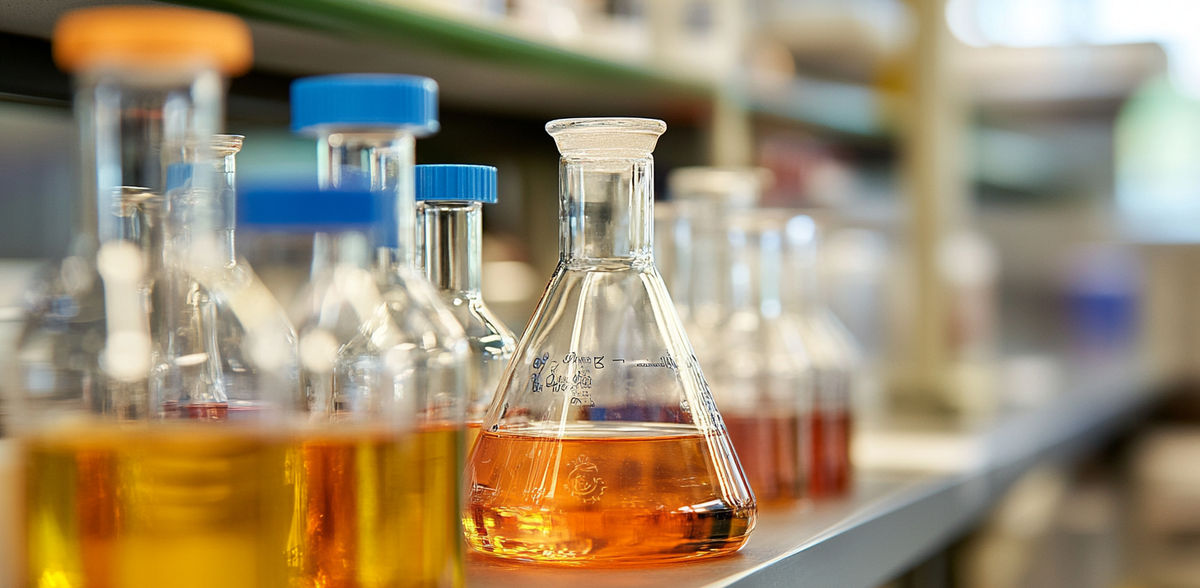Current study paves the way for new approaches to nitrogen chemistry
Chemists at Münster University develop a method for the hydroamidation of double bonds
nitrogen atoms are essential building blocks of many important chemical structures. Nitrogen-containing organic molecules are indispensable for various areas of application such as medicine, agriculture and materials science. Proven methods that reliably form carbon-nitrogen bonds are often used to produce such compounds. The direct and therefore environmentally friendly so-called hydroamidation of alkenes - a widely used class of carbon compounds - is still little used due to a lack of reliable methods. The group of Prof. Dr. Armido Studer from the Institute of Organic Chemistry at the University of Münster has now developed an iron-catalyzed radical hydroamidation reaction. It efficiently introduces nitrogen-containing functional units (amides) into organic molecules that contain double bonds as chemically modifiable groups.
"The new method has a wide range of applications and enables the hydroamidation of complex natural substances such as terpenes," emphasizes Armido Studer. At the heart of the reaction is a new amidation reagent. It enables the cyanamide group used to manufacture numerous products to be transferred to the desired chemical compound. The reagent can be produced on a larger scale, which makes the process attractive for industrial applications.
Beyond direct applications, this method opens up new avenues for chemical transformations. "The introduced cyanamide-containing functional group can easily be converted into other useful groups. This demonstrates the versatility and application potential of this strategy," comments Mengjun Huang, who carried out the experimental studies. By expanding the arsenal of methods for nitrogen incorporation, this discovery paves the way for more efficient and sustainable chemical synthesis.
Note: This article has been translated using a computer system without human intervention. LUMITOS offers these automatic translations to present a wider range of current news. Since this article has been translated with automatic translation, it is possible that it contains errors in vocabulary, syntax or grammar. The original article in German can be found here.
Original publication
Other news from the department science

Get the chemical industry in your inbox
By submitting this form you agree that LUMITOS AG will send you the newsletter(s) selected above by email. Your data will not be passed on to third parties. Your data will be stored and processed in accordance with our data protection regulations. LUMITOS may contact you by email for the purpose of advertising or market and opinion surveys. You can revoke your consent at any time without giving reasons to LUMITOS AG, Ernst-Augustin-Str. 2, 12489 Berlin, Germany or by e-mail at revoke@lumitos.com with effect for the future. In addition, each email contains a link to unsubscribe from the corresponding newsletter.





























































